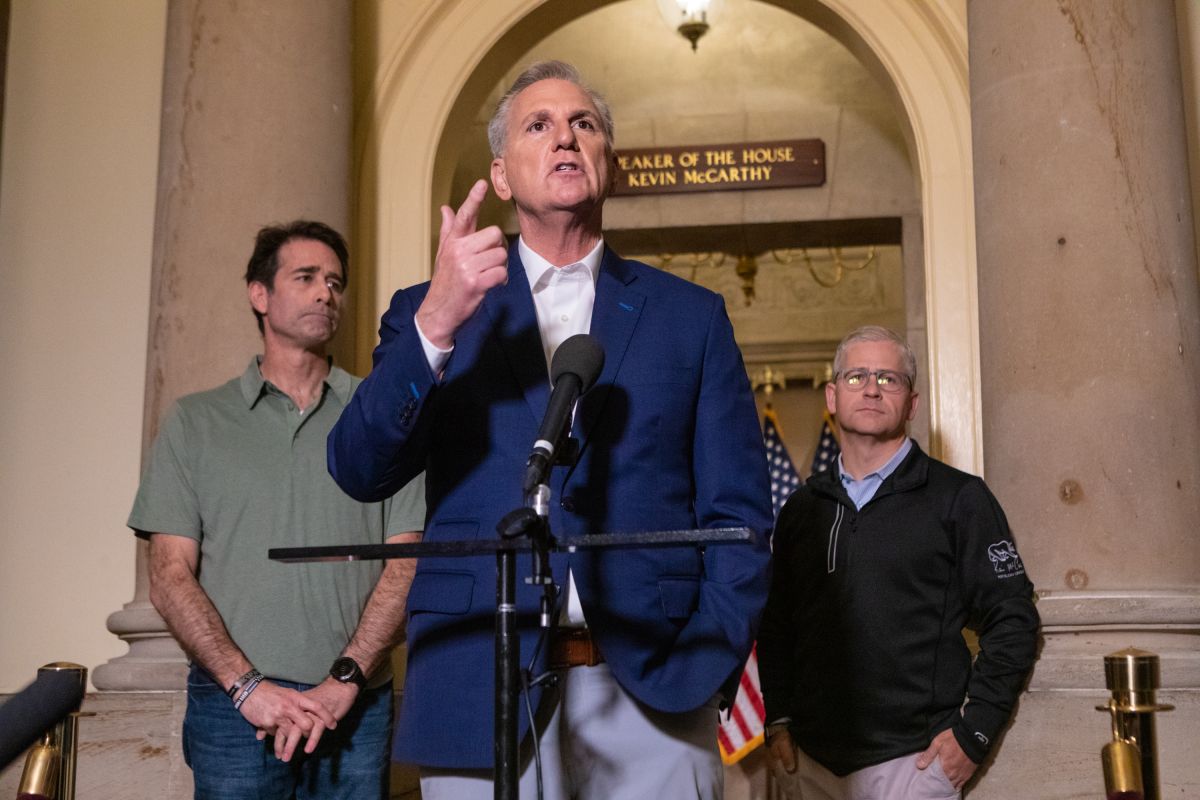The leader of the Republican majority in the House of Representatives, Kevin McCarthy, defended on Sunday the principle of agreement reached with the White House to raise the debt ceiling, in the face of criticism from some legislators from the most conservative wing of his party.
“This is a good and solid law that a majority of Republicans will support,” McCarthy guaranteed at a press conference, in which he assured that the pact between the government and the opposition will be “transformative” by limiting the growth of public spending and introducing new requirements to access social assistance.
The announced principle of agreement has quickly met with criticism from the most radical factions of the Republican Party, who see it as insufficient and consider that there are excessive concessions to the positions of the Democrats.
Republican representatives like Dan Bishop and Chip Roy or senators like Rand Paul, among others, harshly charged against McCarthy, assuring that the spending “cuts” he talks about are not real and that they do nothing more than maintain the status quo.
“This deal is crazy. A $4 trillion increase in the debt ceiling with virtually no cuts is not what we agreed to. I am not voting to ruin our country,” Conservative Congressman Ralph Norman said on Twitter.
Given the narrow majorities that the Republicans have in the Lower House and the Democrats in the Senate, it will be necessary, a priori, that the moderates of both parties broadly support this pact so that it can move forward.
In his press conference, McCarthy played down the conservative criticism and stressed that concessions were needed from both sides to reach a deal and avoid US default.
“It does not achieve what everyone wanted, but that is a divided government,” explained the Republican leader, who reiterated that message in several television interviews this Sunday.
After working overnight on the drafting of the text, the document is expected to be published as soon as possible and can be voted on next Wednesday, McCarthy confirmed.
On the other hand, the leader of the Democrats in the House of Representatives, Hakeem Jeffries, told CBS that he hopes that his party’s legislators will support the agreement, although he did not want to venture figures while waiting to see the final text.
The most progressive wing of the Democratic Party has so far refused to support Republican demands that are known to appear in the pact, such as new work requirements when accessing some welfare benefits.
If approved, the compromise reached will raise the debt ceiling for the next two years, that is, until after the next presidential elections, and will reduce the risk of a suspension of payments during that period.
The debt limit is the total amount of money the United States Government is authorized to borrow to meet its existing legal obligations to pay Social Security and Medicare benefits, military salaries, interest on the national debt , tax refunds and other payments.
From time to time, the United States faces default on its national debt because, unlike other countries, the government can only issue debt up to the limit set by Congress, which has the power to raise that ceiling as it sees fit.
The country reached its legal debt limit of 31.4 trillion dollars on January 19, which led the Treasury Department to resort since then to extraordinary measures to pay the bills.
Keep reading:
- Biden acknowledged concessions in a debt ceiling deal, but maintains “key priorities”
- Biden confirmed that the agreement on the debt ceiling is ready to be voted on in the Chambers
- Janet Yellen insists that June 1 is the deadline for a debt agreement
